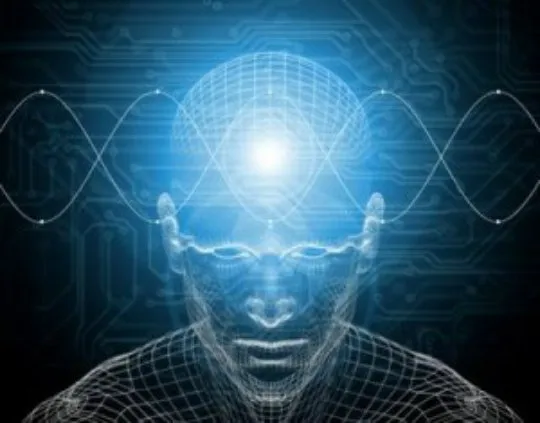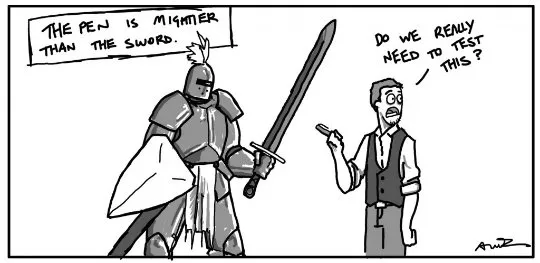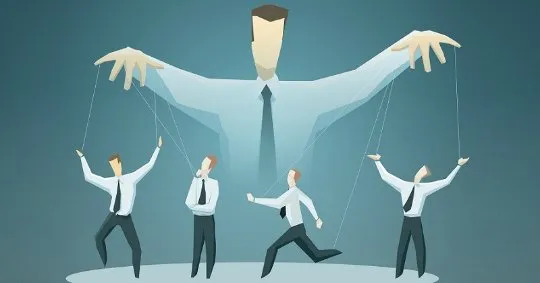You may have heard of LOA, or Law Of Attraction, many celebrities subscribe to it. You may have heard it called something else like Cosmic Ordering, Affirmations, Prayer, or Universal Attraction, however the theory is the same. Ask the universe for something, and it will answer you back by giving you what you ask for.
If you haven't heard of it, let me explain in brief; the Law Of Attraction states that if you write a request down on a piece of paper, then keep that paper somewhere safe, that thing will come true. Sometimes this is accompanied by reading the thing you wrote down and saying it out loud 15 times per day, other times not.
More and more people are subscribing to LOA, people as diverse as the MMA fighter Conor McGregor, right through to the Hollywood superstar Will Smith.
Though in a universe that is governed by ever expanding laws of physics, whereby theories such as thermodynamics have been proven adinfinitum. Is there much to talk about here? Is it a case of wishful thinking; or simply fitting in facts after the event?
Apparently not; though the answer is perhaps not quite as mystical as you might think.
Cutting Through The Bullshit
If you look up LOA on Wikipedia, you will come across the following entry:
the law of attraction is the belief that by focusing on positive or negative thoughts, a person brings positive or negative experiences into their life. The belief is based on the idea that people and their thoughts are both made from "pure energy", and that through the process of "like energy attracting like energy" a person can improve their own health, wealth and personal relationships.
Often when populist theories gain traction in society, they do so via pseudo-science, that is to say they take previously proven scientific facts, and mould them to their own self-serving, interests.
Take the statement above, particular the part about people and their thoughts being made from pure energy.
That statement in isolation, can be said to be true; as first postulated in Einstein's famous mass-energy equivalence equation E=MC2 and further proven in various quantum field, collider experiments at the LHC and beyond.
However at no point has it been proven that these energies are somehow conscious and can act accordingly. In fact, if anything, scientists are proving day by day, that energy is energy whereever you are and however you observe it. The same can be said for matter at its base level, there is nothing distinctive or special from one quark to the next.
Though saying all of that does not matter, the LOA appears to work. Perhaps then it is a case of celebrity delusion? Whereby a celebrity becomes successful in their field, and later on, after their initial success, they get into some form of mysticism. Be it Kaballah, or LOA, and then mistakenly attribute their new found spirituality with their success.
The Pen Is Mightier Than The Sword
It would appear at first glance, that LOA is simply a form of self-hypnosis, albeit a rather effective one. Believers tell themselves something enough, and therefore subconsciously start taking steps to make that thing come true; or at least the believers it works for.
One thing is crystal clear, if you lie around in bed all day playing World of Warcraft, then no matter how hard you wish for it, you are not going to become a professional athlete or some kind of rock God.
Tell yourself something enough times, whilst actively taking steps to make that thing come true, and you have a shot, it's that simple.
However there is something even more interesting than simple self-hypnosis taking place here. In the 1950s America fought in the Korean war, and in that war thousands of American soldiers were captured by both the North Koreans and the Chinese.
The American POWs suffered terrible treatment, especially at the hands of the North Koreans. The Chinese however had another agenda besides sheer brutalisation.
The Red Army sought to make collaborators out of American soldiers, by getting them to agree with communism and to denounce the United States and its actions. The program was so effective, that it sparked huge fears back home when the soldiers returned, and proved a catalyst for the now infamous McCarthy witch hunts.
It turns out that the Chinese were aware of certain cognitive biases when you write things down. So for instance an American after hours of exhausting interrogation, may have been asked the question;
"Do you agree that America is not perfect?"
Even the most pedantic of patriots, under such duress would have to concede that of course their beloved homeland wasn't perfect.
After that, the Chinese interrogator might then suggest that the soldier write down those words. If he refused, then his oppressor might persuade him to sign his name to a written statement expressing the statement.
This often felt like a small concession, after all, you were just putting your name to something that whilst was true, was a pretty banal and harmless statement, about the non-perfection of America. Because after all, nobody is perfect, right?
Well it turns out that the writing down of such statements, or the written consent of them, fundamentally changes something in the psyche of the person doing the writing.
It seems that there is a basic human instinct to appear consistent, and once you have written something down, especially if that thing becomes public, you will find it psychologically difficult to go against what you previously wrote down.
The Chinese knew this very well, and their tactics ranged from getting prisoners to sign seemingly ambiguous statements. To writing essays about America and China, capitalism, and communism.
One of the reasons for their success in getting enemy soldiers to ultimately agree and eventually collaborate with them, was because the rewards they gave out for things like essay writing, were typically very small.
For instance an American POW who won an essay writing competition, may get an extra cigarette or a 10% extra rice rations. Even by the standards of a prisoner of war camp, these prizes were small. The reason being, that psychologically, you are much more likely to conform to an idea if there is not a huge amount of coercion.
So in other words, you can beat or bribe a person to say anything; however it is very unlikely to stick in that person's mind as something they actually believe in.
However if somebody seemingly comes to a decision by themselves, it is much more likely to stick. So with a combination of public declaration, with small reward, the Chinese succesfully gained a huge amount of colaboration from the Americans.
The North Koreans on the other hand, who simply brutalised their prisoners of war, rarely got more information than, name, rank, and serial number.
Modern Manipulation
We have seen these experiments recreated in less harrowing, more modern settings. A study done by Dutch psychologists showed that, three sets of students each shown different length lines, had varying degrees of loyalty to their guesses.
Group number one was asked to guess the length of a bunch of random lines they were shown. The second group were asked to guess, and then write down their answers on a magic marker pad. Once they had done this, they were to lift the cover of the pad, thus wiping their written results.
The last group were asked to guess, then write down their guesses in a pad, and hand them into the experimenter.
Next, all three groups were given new information about the length of lines, which ultimately would help them make more accurate guesses.
The first group who had written down nothing, had a very high percentage of people changing their guesses on the strength of the new information. Group two, who had briefly written down their guesses were much more reluctant, just under half decided to change their guesses.
The last group stuck to their guns, around 96% refused to change their estimates. The general consensus is that once we have committed to something by writing it down. Especially if we show that thing to someone, then subconsciously we feel we are committed to the idea.
This for me is the main reason LOA works, if you write down what you want the universe to give you, then there is every likelihood, that you are cognitively indebted to that idea.
Clearly there must be limitations, if the request is too fantastical, like wanting to visit Jupiter's moon Europa, next year, then no amount of psychological burden will get you there.
However wish for a better job, or more money, then the chances are (as long as you're not lazy as hell), will be that those things will manifest themselves because of your actions, designed to make that thing happen.
Cosmic Conclusion
There is no such thing as magic; however our brains are so amazingly complex, that things often arise from our thinking, which could be considered magical or mystical.
Regardless of why it works, the Law Of Attraction has made a lot of people very happy and successful. It definitely won't work if you don't put in the time to make it work, and it can't really help if you ask for things beyond your control, like a lottery win.
My philosophy is why not? As long as you're not deluding yourself, or giving yourself an excuse not to take action, then just go for it. Write down what you want the universe to give you, look at that piece of paper every day, maybe even show it to someone, then see what happens.
Then check back here and let me know how it went for you!
Cryptogee
WHAT DO YOU THINK? IS IT ALL A LOAD OF BALONEY OR DO YOU BELIEVE IN THE LAW OF ATTRACTION? HAVE YOU HAD ANY DIRECT OR INDIRECT EXPERIENCE OF LOA? IF SO, LET ME KNOW BELOW!




